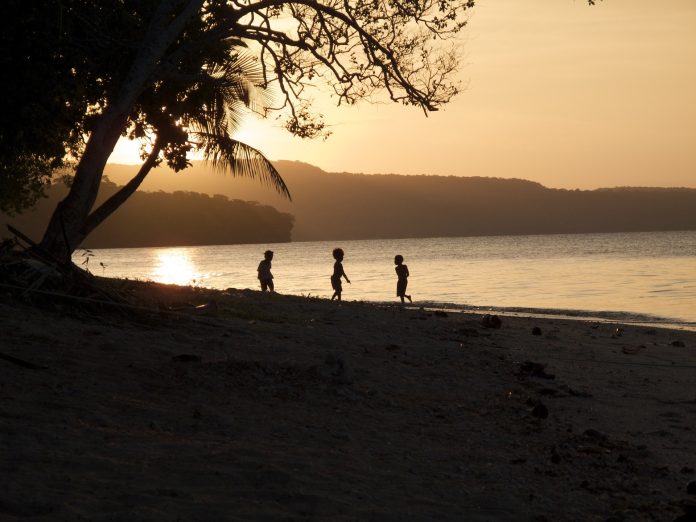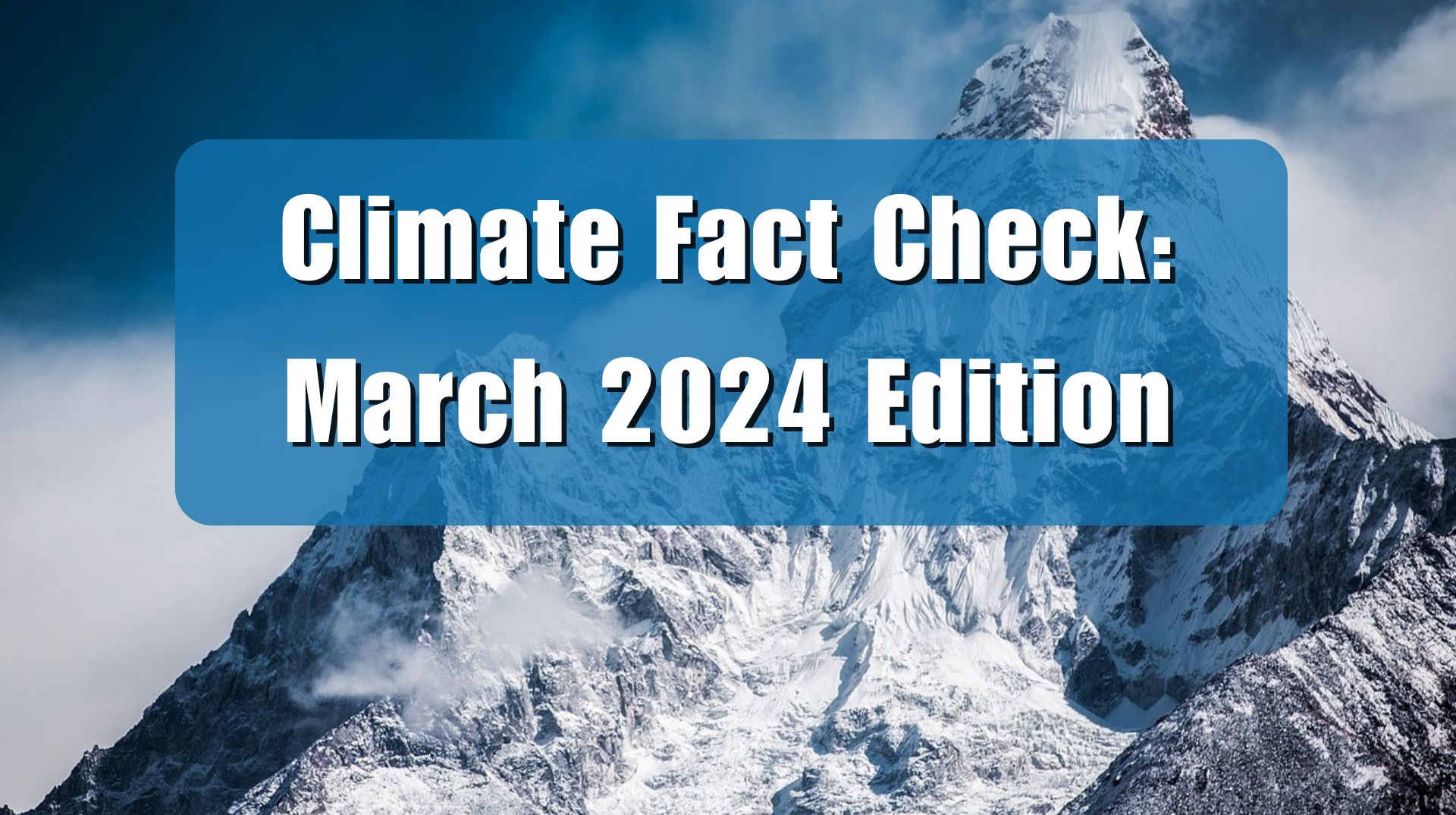According to Axios the United Nations (UN) is poised to approve a resolution from the small island nation of Vanuatu to bring a case for climate change related damages before the International Court of Criminal Justice in (ICCJ) the Hague. Such action by the UN would be a purely political move, an effort to force countries to advance climate policies and pay climate reparations, not one based in provable climate harm. There is no evidence showing climate change is causing or enhancing the underlying “harms” Vanuatu is likely to cite in its action, increased cyclone activity and rising seas.
Reporting on Vanuatu’s possible legal action in an article, titled, “Tiny island nation takes climate change to The Hague,” Axios writes:
The small Pacific Island country of Vanuatu is poised to gain UN approval to seek an unprecedented legal opinion on what obligation countries have to combat climate change.
Why it matters: Vanuatu’s resolution would give the International Court of Justice (ICJ) in The Hague a chance to weigh in on potential consequences for nations that have caused much of global warming to date.
The nonbinding advisory opinion could be cited by U.S. courts, and used in legal proceedings around the world.
The big picture: The push started in a law school classroom in Fiji four years ago, according to Cynthia Houniuhi, president of Pacific Islands Students Fighting Climate Change.
She and her international environmental law classmates brainstormed ways to seek action through various legal mechanisms, Houniuhi told reporters on a press call Thursday.
While the UN’s imprimatur or approval of Vanuatu’s claims might carry weight with the ICCJ, allowing a case to be heard, it is unclear any remedies the ICCJ might grant if the case were successful, would to lead to actual policy changes. More immediately, Vanuatu would likely have to provide hard evidence before the ICCJ that its nation is provably being harmed by the actions of developed countries that have emitted the most carbon dioxide emissions historically. While Vanuatu claims is it particularly vulnerable to likely impacts of climate change, there are no specific harms it can attribute to human induced climate change.
The World Bank has published a document: “Climate Risk Country Profile: Vanuatu,” which complicates Vanuatu’s case, because its first two Key Messages state:
- Vanuatu is warming and is expected to warm throughout the 21st century. Future rates of warming are clouded by current models’ inability to simulate very localized changes but, warming is expected to be in the range of 0.7°C–2.9°C depending on the 21st century rate of global emissions.
- Natural variability between years, even decades, ensure short- and medium-term rainfall changes are difficult to detect and project into the future. Further research is urgently required to develop models better suited to modelling the future climate of Pacific Islands.
In short, the type, extent, and timing of impacts of purported human caused climate change are uncertain. Also, the climate models upon which they are based are unable to accurately account localized climate conditions or the factors which impact them for short and medium term. Indeed, the basis for any case Vanuatu might bring before the ICCJ are climate model outputs, rather than observed changes or trends over the past thirty years of climate change. Yet, as discussed at Climate Realism, here and here, for instance, climate models are seriously compromised. As a result, their projections can’t be trusted and provide no basis for potential public policies.
The World Bank’s report lists a variety of ways climate models project climate change might impact Vanuatu, the big three being: sea level rise; coral bleaching; increased tropical cyclone activity. The World Bank writes specifically with regards to tropical cyclones that because our understanding of large natural global circulation patterns is “weak … likely trends are not well understood.” The same is true for the other projected impacts as well.
As the World Bank notes, in the face of sea level rise Vanuatu has the advantage of having relatively high elevation when compared to many other small island nations. Concerning rising seas, there is little evidence that seas have begun rising globally at accelerated rates during the recent period of warming. In addition, even in the face of rising seas, as discussed at Climate Realism, here, here, and here, for example, even low lying small island nations are not, in general, suffering net land losses or losses in development or tourism.
Concerns about the impact of climate change on coral reefs is equally misplaced. Although bleaching of corals is not uncommon, the cause of such events is due to factors other than climate change. Experience shows most coral reefs recover from bleaching events, and that corals have evolved and continue to evolve in response to changed climate conditions. There is no reason to believe corals in Vanuatu are exceptions to these trends and facts.
As the World Bank report notes, although Vanuatu is vulnerable to tropical cyclones, climate models provide no support for the claim that tropical cyclones in general, or those occurring in the South Pacific where Vanuatu lies, have increased or are likely to do so. Indeed, concerning hurricanes and cyclones globally, the U.N. Intergovernmental Panel on Climate Change’s AR6 Physical Science report does not indicate climate change has caused hurricanes or tropical cyclones to increase in number or intensity.
“There is low confidence in most reported long-term (multidecadal to centennial) trends in TC [tropical cyclone] frequency- or intensity-based metrics,” concluded the IPCC in AR6.
In addition, multiple recent studies published in various peer reviewed journals, here, here, and here, for example, consistently find that the number of tropical cyclones in the South Pacific and the number of class three or above cyclones (major cyclones) have declined in recent decades even as the earth has modestly warmed.
One of the studies attributes a 13 percent decline in the frequency of tropical cyclones since pre-industrial times to climate change. Also, commenting on their findings, the authors of a second study concerning Pacific cyclone frequency near Japan said referring to a measured decline in cyclones, “[t]his is the opposite of what climate ‘experts’ said would happen.”
To conclude, even if the U.N., for political reasons, approves Vanuatu’s petition to take a case for climate action and damages to the ICCJ in The Hague, the island nation will have a tough row to hoe, proving human actions are causing it identifiable harms, because there is no evidence that is happening. Courts require real evidence, and evidence that human caused climate change is harming Vanuatu is severely lacking. Vanuatu should not waste its peoples’ money on this misguided lawsuit.

















